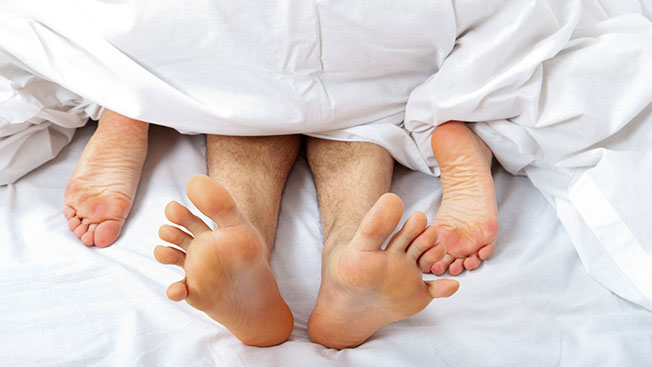Maybe we’re guilty of generalizing, but let’s just venture a guess and say that people like to have sex.
Of course, people like to shop, too. Marketers have long understood the relationship between these two activities, which is no doubt why suggestively posed sexy models wearing scanty clothing is a sure-shot way to sell stuff. But a closer look at a rash of recent marketing initiatives reveals a bizarre twist on this dynamic. Increasingly, brands are attempting to sell themselves to consumers not by using sex, but by arguing that they’re better than sex.
And how would a company go about doing that? Actually, it’s pretty easy: Just commission a survey that quantifies how many people would rather have the brand than have sex.
For example, it turns out that lots of people would rather make love to digital devices than one another. In May, social gaming network PlayPhone surveyed 1,000 mobile gamers and revealed that 20 percent of them would rather give up sex for one week than do without their mobile games. (Sort of gives Candy Crush a whole new meaning, doesn't it?)
Then, last month, a company called Gazelle—which buys your old iPhone, presumably so you’ll have money for a new iPhone—showed us just how much we love our iPhones: Close to 15 percent of the 1,000 customers it surveyed said they’d happily give up sex for a weekend than do without their iPhones.
That’s great news for Apple—and, in fact, the news gets even better. In 2011, tech firm TeleNav revealed that 33 percent of Americans would forego sex—not for a weekend, but for a full month—rather than surrender their iPhones. And when the sample group is narrowed to women only, the number who’d happily trade intimacy for their phones rises to 48 percent—at least according to a 2013 survey by Real Simple.
For the record, men are just as willing to give up sex for a brand—so long as it’s a dude brand. When U.K.-based electronic retailer Comet surveyed 2,000 British men in 2008, it found that 47 percent would go celibate for a solid year in exchange for a 50-inch plasma TV set. (In fairness, flat-screen TVs were newer then, so maybe the guys were still in a honeymoon period.)
Speaking of honeymoons, Westin Hotels and Resorts recently promoted its Westin Well-being Movement with survey results that showed that 24 percent of us would abstain from sex for a full year if it meant improving (guess what?) our well-being.
A stay at Le Meridien Hotels is, apparently, also preferable to sex—at least according to its 2013 survey that revealed that 78 percent of 7,500 respondents would rather give up sex than coffee—presumably Le Meridien coffee, which is actually Italian brand Illy coffee, but let’s just keep this moving, shall we?
Haggling with an oily car salesman is such an unpleasant experience that 44 percent of consumers would rather give up sex for a month than have to do it. The source of this intelligence? A just-released survey by car-shopping site Edmunds.com, which is eager for us to know that visiting them is more pleasurable than visiting a car lot.
If you’re tempted to blame the Internet for the prevailing preference of brands over sex, go right ahead: It turns out that 43 percent of us would rather go without sex than go without the Internet. Oddly enough, credit for that fun fact goes to a 2014 survey by Skyn, a brand of condoms.








